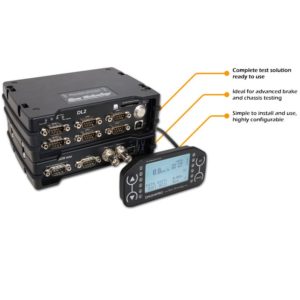Food safety is of utmost importance in the food industry. The quality and safety of our food are directly linked to our health and well-being. With increasing concerns about foodborne illnesses and quality control, the role of Data Recorder in ensuring food safety has become increasingly vital.
This article will take you to the guide on how data logger can improve food safety.
What is a Data Logger?
A data logger is a device that monitors and records various parameters such as temperature, humidity, pressure, and more. It is commonly used in the food industry to track and document critical information throughout the supply chain.
Ensuring Temperature Control for Perishable Food
One of the key factors affecting food safety is temperature control, especially for perishable food items. Improper temperature management can lead to the growth of harmful bacteria or spoilage, putting consumers at risk.
With the help of data loggers, food businesses can accurately monitor the temperature of storage facilities, refrigerators, and transport vehicles. These devices provide real-time data and historical records, allowing enterprises to identify temperature fluctuations and take corrective actions promptly.
By regularly analysing the data collected by data logger, food companies can ensure that perishable food items are stored and transported under optimal temperature conditions, minimising the risk of spoilage and maintaining the quality and safety of the products.

Preventing and Detecting Foodborne Illnesses
Contamination with harmful bacteria or pathogens is a serious concern in the food industry. Foodborne illnesses can have severe consequences for consumers and damage the reputation of food businesses.
Data loggers play a crucial role in preventing and detecting foodborne illnesses. By monitoring temperature and humidity levels in food processing environments, data loggers can help identify potential sources of contamination. If any deviations from safe levels are detected, prompt action can be taken to prevent the spread of pathogens and ensure food safety.
Compliance with Regulatory Standards
The food industry is subject to strict regulations and standards to ensure public health and safety. Data loggers are invaluable tools in meeting these regulatory requirements.
Data loggers allow food businesses to easily demonstrate compliance with food safety regulations to the relevant authorities. The accurate and detailed records provided by data loggers serve as proof of diligent temperature logger and adherence to food safety protocols.
Improving Traceability and Quality Control
In addition to enhancing food safety, data loggers also improve traceability and quality control in the food industry. By monitoring and recording relevant data throughout the supply chain, from raw material sourcing to the end consumer, data logger enable businesses to track and verify the origin and quality of food products.
This information is valuable for ensuring customer satisfaction and for conducting effective recalls in case of product defects or contamination incidents. With thorough traceability, affected products can be quickly identified removed from the market, and corrective actions can be implemented promptly.
Conclusion
In conclusion, data loggers have emerged as indispensable tools for ensuring food safety in the modern food industry. By providing accurate and real-time data, these devices help businesses monitor and control temperature, prevent foodborne illnesses, comply with regulations, and improve traceability and quality control.
With the implementation of data loggers throughout the food supply chain, consumers can have increased confidence in the safety and quality of the food they consume. Ultimately, using data logger contributes to a healthier and safer food industry for everyone involved.

No comments yet